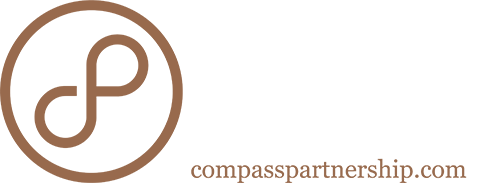Clarity in Complexity
Problem-solving starts with self-awareness
In the post-COVID world, challenges loom large, seemingly insurmountable. The legacy of Covid-19 serves as a stark reminder of the complexity of issues we face, embodying what scholars term as ‘wicked problems’. Coined by Horst Rittel and Melvin Webber, this concept describes challenges of immense complexity, often lacking clear definitions or solutions, and defying conventional problem-solving approaches. Think cost of living, climate change, education redesign, or poverty eradication – these are just a few examples of wicked problems that defy easy resolution.
In today’s VUCA working environments (volatile, uncertain, complex and ambiguous), we are faced with even more of these wicked challenges and multifaceted problems. It may seem as though logic and analytics are the only way to tackle them. However, there are a number of key skills that help us to hone our responses to these challenges.
Making sense of what’s happening
How we deal with complex issues, crises, and wicked problems depends on how we make sense of them. Sensemaking is how we give meaning to our collective experience; how we perceive the world around us. We can then build a plausible ‘map’ of the world and test it out with others through conversations, observations, listening and taking on board other perspectives. Through sensemaking in our workplaces, we have a way to combine the viewpoints of everyone in our team or on our project: Is there any common ground? Can we identify any trends? What are the attitudes and feelings we can see?
Sensemaking creates the knowledge that we need to collaborate, innovate and build the insight that will allow us to move forward. We are able to engage the minds, ideas and support of the people around us. In this way, how we make sense of the world depends on human social interaction and our own self-awareness.
Self-awareness
In uncertain and rapidly changing situations, it can be all too easy to feel overwhelmed and lost. What we need is an ability to exert control and see things clearly when we’re under pressure; to regulate our reactions and behaviour. We need high levels of self-awareness.
Self-awareness allows us to understand how and why we respond in certain situations, giving us the opportunity to take charge of these responses and regulate stress. It’s all about knowing the triggers for our behaviours. Not only does this help us to understand our own capacities, but it gives us insights into how we are seen by others. This is particularly powerful as it links to our feelings of identity.
To see how important self-awareness is, you need only look at where it is lacking. Toxic leaders show a scarcity of self-awareness. They are unaware of their own failings and limits, and oblivious to how their behaviour impacts on others or how they are perceived. They are overconfident about their own performance and effectiveness. These personality traits inform their leadership style. This leadership style creates the culture of the team and, in turn, this can become the reality across the organisation.
Now, that’s not to say that workplaces should be emotion-free zones, but they should be free of unstable negativity, rants and judgements. If people fear the repercussion of a leader or colleague prone to over-emotional outbursts, they are unlikely to highlight problem areas or share their ideas.
Self-awareness allows us to understand how and why we respond in certain situations
The foundation for critical behaviours
Self-awareness is the core building block on which other essential skills are based:
- In their work on Emotional Intelligence, Salovey and Mayer and subsequently Daniel Goleman point to self-awareness as a key skill which links with other critical adaptive behaviours such as empathy, motivation and social skills.
- Being more self-aware with greater self-control and regulation of our emotions are the critical components that help us to build our skills of resilience. Karen Reivich outlines 7 key pillars of resilience, with emotional awareness being the first.
- We can promote the ideas of positive psychology (like those in Martin Seligman’s PERMA model) that impact management, leadership and wellbeing by being more aware of ourselves and our responses to the world around us.
The results of high self-awareness speak for themselves. Research by Cornell University showed that self-aware leaders with strong interpersonal skills delivered better financial performance than those who were harsh, hard-driving and focused on results at all costs.
How to build your self-awareness
There are some practical techniques that you can use to build your self-awareness. You can download our self-awareness reflections worksheet here.


